#lord bassanio
Text
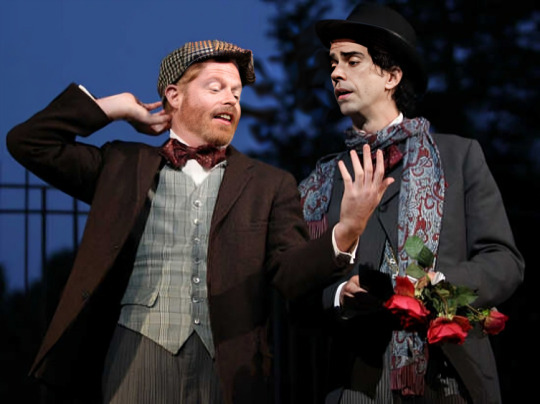
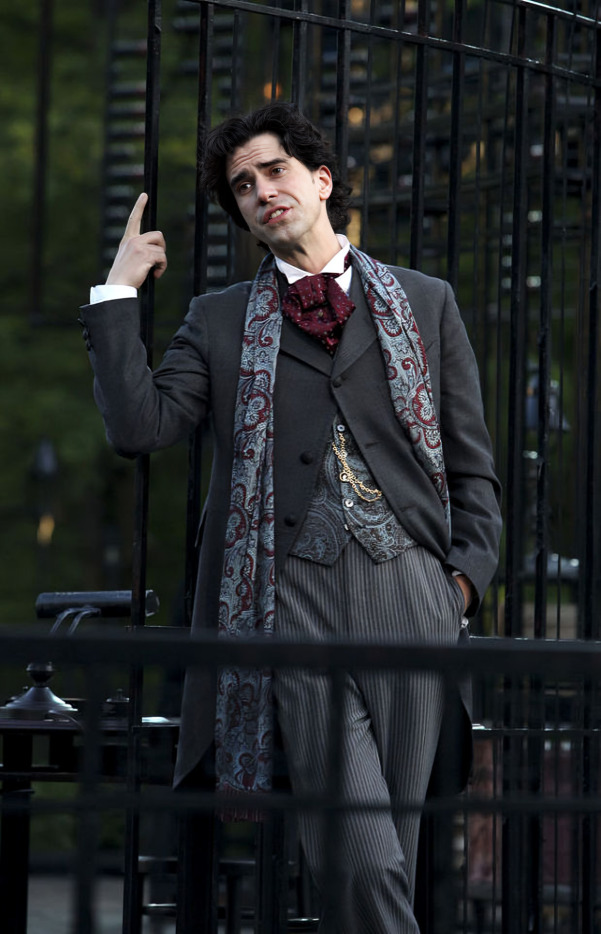
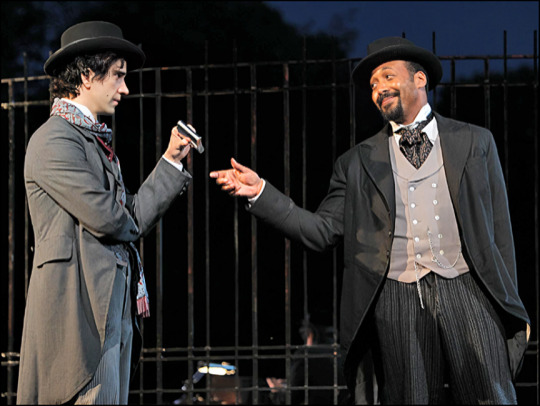
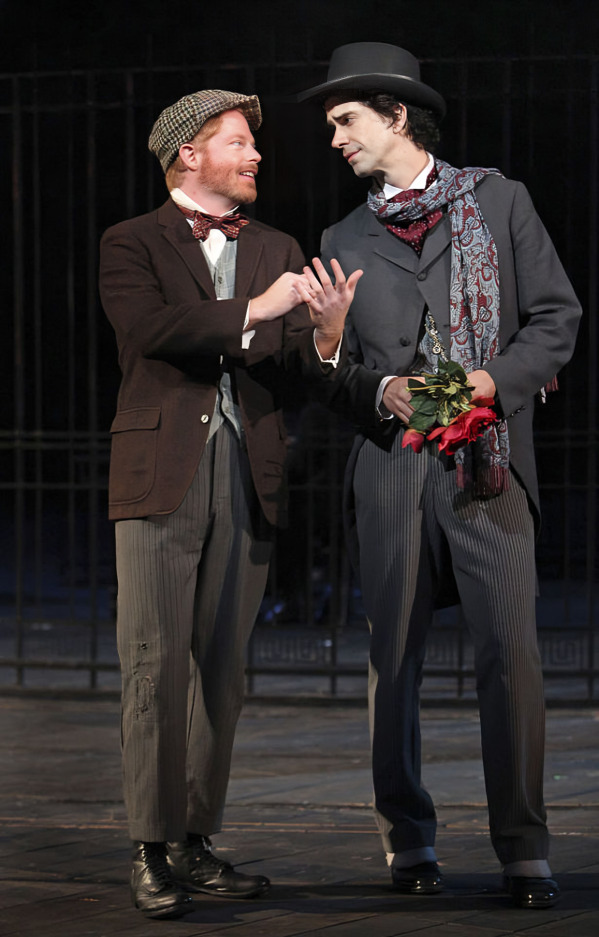
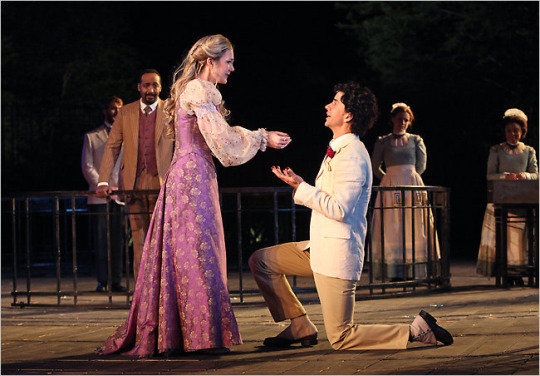

HAMISH LINKLATER as LORD BASSANIO in the 2010 Shakespeare's in the Park Production of The Merchant of Venice
#hamish linklater#lily rabe#al pacino#jesse tyler ferguson#shakespeare in the park#the merchant of venice#shakespeare#lord bassanio#bassanio#portia#shylock
94 notes
·
View notes
Text
Antonio from the Merchant of Venice is in love with Bassanio (and Portia knows)
EVIDENCE:
Act 1, Scene 1: when Salarino guesses Antonio is in love (context: "in sooth I know not why I'm so sad"), Antonio is quick to deny this. Too quick, if you ask me.
Act 1, Scene 3: Antonio basically promises his life to his mortal enemy in exchange for 3000 ducats, just to make Bassanio happy.
Act 2, Scene 8: The entire damn exchange between Salanio and Salarino. Like what the actual hell? "I think he loves the world only for him [Bassanio]"
Act 3, Scene 3: So Antonio is imprisoned. He believes he's gonna die. And he's okay with it. AS LONG AS HE SEES BASSANIO FIRST. HE LAST WISH IS TO SEE BASSANIO HAPPY AND DIE WITH THE KNOWLEDGE THAT HE WAS THE REASON BASSANIO FOUND HAPPINESS.
Act 3, Scene 4: Lorenzo, seriously? "How dear a lover of my lord your husband..." lover? LOVER? in every other case of friendship, the words Brother or just simply, Friend is used. But lover? Shakesqueer be like, "No, let's reserve these for my two precious pookies"
Act 4, Scene 1: I'd give actual money to see Portia's exact expression during this scene. Like, what would be her exact reaction when Bassanio says shit like "my life, my wife, and all the world is absolutely zero, unimportant, insignificant in front of you, bro" and after that (AFTER THAT) when Antonio Literally says "bid her be judge, whether Bassanio had not once a love". What would Portia be feeling then?
Act 4, Scene 1: Bassanio- No, my wife says no. I will never give you this ring. Antonio- * winks flirtatiously * Bassanio- TAKE THE DAMN RING
Act 5: Portia gives Antonio a ring and tells him to give it to Bassanio when she could've just given it to him herself.
#merchant of venice#Antonio#shakesqueer#shakespeare#Bassanio#Portia#Merchthrift#desi academia#desiblr#icse2023#icse board#english literature#litblr#bane of my existence#I meant Shakesqueer#if only he knew#Antonio dear I would've loved you if you weren't so antisemitic#Shylock deserves happiness#Jessica is a traitor#the merchant of venice
111 notes
·
View notes
Text



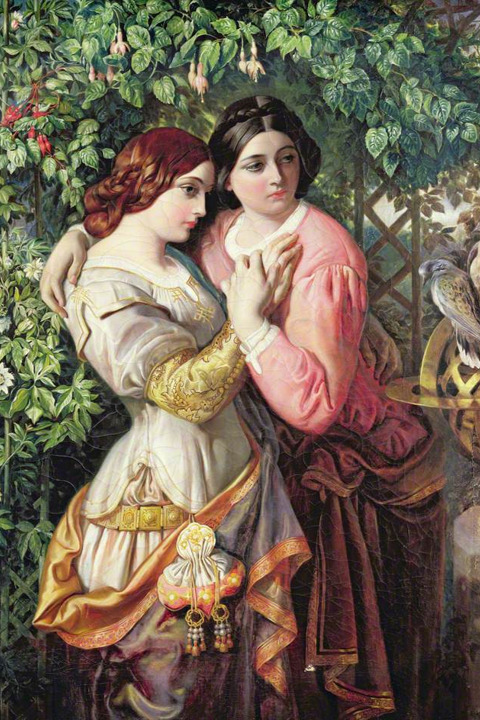
Various Gay/Lesbian/Bisexual interpretations of Shakespearean characters:
(I found it helpful a lot of the time to compare characters to Romeo and Juliet’s willingness to die for each other. Even though I said it doesn't matter if hugging, kissing, etc was a sign of "just friends" in the Elizabethan era, you can usually convince a doubful person this behavior is romantic when comparing it to such a universally accepted declaration of love.)
Antonio from Twelfth Night:
He rescues Sebastian from a shipwreck and nurses him back to health, describing their relationship as follows:
“I snatch’d one half out of the jaws of death, reliev’d him with such sanctity of love, and to his image, which methought did promise most venerable worth, did I devotion.”
“To-day my lord; and for three months before, no interim, not a minute’s vacancy, both day and night did we keep company.”
“His life I gave him, and did thereto add my love without retention or restraint, all his in dedication; for his sake, did I expose myself, pure for his love, into the danger of this adverse town.”
He follows Sebastian to Orsino’s court, knowing there were people who wanted him dead there
“I have many enemies in Orsino’s court, else would I very shortly see thee there. But come what may, I do adore thee so that danger shall seem sport, and I will go.”
To Sebastian: “If you will not murder me for my love, let me be your servant.”
He leaps into the middle of a duel to protect Sebastian, risking his life and ultimately getting arrested.
Celia from As You Like It:
Not life or death, but she still does sacrifice her entire life to stay with the woman she loves. She gives up her entire lifestyle, family, security, and identity in order to remain with Rosalind.
“I cannot live out of her company.”
Others talk of how Celia “loves her … she would have followed her exile, or have died to stay behind her … never two ladies loved as they do.”
“I see thou lov’st me not with the full weight that I love thee.”
“We have slept together, rose, at an instant, learn’d, play’d, eat together; And wheresoe’er we went, like Juno’s swans, still we went coupled and inseparable.” (Juno is the goddess of marriage, and swans are known for mating for life)
Horatio in Hamlet:
Proves himself a loyal and loving friend to Hamlet. Even though Hamlet deeply distrusts all other characters, he is willing to believe everything from Horatio -- even far-fetched tales of ghosts
Horatio attempts the exact same sacrifice as Romeo when he reaches for the poisoned cup to join Hamlet at the end of the play: “here’s yet some liquor left”
Antonio in The Merchant of Venice: (Yeah, I know. It turns out Shakespeare had like five Antonio’s...)
In order to save Bassanio’s life, he offers up his body as payment to a deal.
He takes the man’s hand before he is to die, commanding him to tell Bassanio’s wife, “say how I lov’d you, speak me fair in death; And, when the tale is told, bid her be the judge whether Bassanio had not once a love.”
Afterwards, Bassanio faces pressure to give away the ring that he had sworn to his wife he’d keep. Antonio persuades him to give it away.
There’s a lot of lines and behaviors involved in As You Like It and Twelfth Night as a crossdressed character causes the cast to act on unknown homosexual desires. And listen, just because the characters don’t realize they’re falling for the opposite gender, or just because they were falling for the right gender all along, it doesn’t take away from the passion and flirting that occured -- there's no "mistakes" going here
Orlando flirts daily with Ganymede, exchanging romantic banter and even getting pretend-married.
Phoebe falls hard for Rosalind and begs to marry her.
Orsino develops feelings for Cesario. In many productions he grows awkward around him because he isn’t sure how to act.
Olivia chases after Viola’s affections, flirting and begging her to marry.
You can also look at themes/conflicts when reading a play as queer. Even when performed with cishet characters, it can be interpreted as a metaphor to those who relate to the experiences.
People aleays laugh when I say Romeo and Juliet is a great gay play, but it is. It focuses on forbidden love, with the threat of family’s wrath. Should the protagonists’ parents or relatives discover who they chose as a lover, the characters may face disownment and danger.
Midsummer Night’s Dream features characters constantly dealing with unrequited love and rejection. A commonly discussed experience from gay and lesbian communities is the tendency to fall for others outside the community who never reciprocate those feelings. (There's also some falling-for-unconvential-partners, but that gets a little murky when you try to compare queerness to falling in love with a donkey :/ Still, if you've got the time and dedication there's definitely queer analogies you could find in that play)
The Taming of the Shrew is known for its theme of “otherness.” Katherina is notorious for breaking current conventions, and is treated poorly for it. The title itself refers to her experience of being painfully assimilated to fit into the norms. I've heard Othello discussed along with this theme too. (I didn't go too deep into it for my project, since it's clear commentary on race rather than queerness. But the evidence is there if you wanted to read it that way)
All the previous examples can contribute to bisexual readings, with Orlando, Phoebe, Olivia, and Orsino being the most specific examples. Unlike the others, they show attraction to two distinct genders during the events of the play. Sebastian may also be included in this, if one reads him as reciprocating Antonio's love while also marrying Olivia -- there are some productions that have all three of them Together during the happy finale :)
Original post
#twelfth night#as you like it#merchant of venice#hamlet#romeo and juliet#a midsummer night's dream#the taming of the shrew#othello#Shakespeare#pride#rose posts
79 notes
·
View notes
Text
woo woo! losers all of you!!!

matchups under cut!
side a
rosencrantz/guildenstern/hamlet (hamlet) vs the tell tale heart/the raven
helena/hermia (a midsummer night's dream) vs steerforth/copperfield (david copperfield)
saint-just/robespierre (the danon case) vs roderigo/iago (othello)
tybalt capulet/mercutio (romeo and juliet) vs eponine thenardier/marius pontmercy/cosette fauchelevent (les miserables)
the bear from war and peace/the bear from the winter's tale (wap and twt) vs enjolras/grantaire (les miserables)
bohun/skretuski (with fire and sword) vs proteus/valentine (the two gentlemen of verona)
gregor samsa/therapy (the metamorphosis) vs grantaire/pierre bezukhov/alcohol (les miserables; war and peace; real life)
benvolio montague/mercutio (romeo and juliet) vs romeo montague/edmund (romeo and juliet; king lear)
marya bolkonskaya/julie karagina (war and peace) vs coriolanus/tullus aufidius (coriolanus)
polonius/the curtain (hamlet) vs macbeth/banquo (macbeth)
puck/titania/oberon (a midsummer night's dream) vs courfeyrac/marius pontmercy (les miserables)
andrei bolkonsky/pierre bezukhov (war and peace) vs malcolm/macduff (macbeth)
benvolio montague/tybalt capulet/mercutio (romeo and juliet) vs benedick/beatrice (much ado about nothing)
fyodor dolokhov/anatole kuragin (war and peace) vs starbuck/ahab (moby dick)
romeo montague/tybalt capulet (romeo and juliet) vs romeo montague/paris/tybalt capulet (romeo and juliet)
andrei bolkonsky/the lofty sky (war and peace) vs christine daae/meg giry (the phantom of the opera)
side b
rodion raskolnikov/dmitri razumikhin (crime and punishment) vs andrei bolkonsky/the oak tree (war and peace)
benvolio montague/horatio/combeferre (romeo and juliet; hamlet; les miserables) vs andrei bolkonsky/anatole kuragin (war and peace)
helene kuragina/natasha rostova (war and peace) vs joly/bossuet/musichetta (les miserables)
enjolras/courfeyrac/combeferre (les miserables) vs barnardo/marcellus/francisco (hamlet)
kent/lear (king lear) vs pip/herbert (great expectations)
polonius/claudius (hamlet) vs enjolras/laertes/france (les miserables; hamlet; real life)
raoul de chagny/jay gatsby (the phantom of the opera; the great gatsby) vs don john/conrade (much ado about nothing)
tsar alexander/napoleon bonaparte (war and peace not irl) vs tybalt capulet/montparnasse (romeo and juliet; les miserables)
lord capulet/lord montague (romeo and juliet) vs alphonse berg/boris drubetskoy/nikolai rostov/vasili denisov/fyodor dolokhov (war and peace) (TIEBREAKER IN PROGRESS)
marius pontmercy/enjolras (les miserables) vs pyotr verkhovensky/nikolai stavrogin (demons)
les amis + marius (les miserables) vs macduff/macbeth (macbeth)
raoul de chagny/erik (the phantom of the opera) vs nikolai rostov/tsar alexander (war and peace)
olivia/violacesario (twelfth night) vs cyrano/roxane/christian (cyrano de bergerac)
romeo montague/bassanio/anatole kuragin/raoul de chagny/marius pontmercy (romeo and juliet; the merchant of venice; war and peace; the phantom of the opera; les miserables) vs eugenie/louise (the count of monte cristo)
hamlet/laertes (hamlet) vs lysander/demetrius (a midsummer night's dream)
desdemona/emilia (othello) vs andrei bolkonsky/enjolras (war and peace; les miserables)
#i seeded exactly one (1) matchup#guess which one#this is hell lmao#queer classic lit ship losers#qcls losers#l: round 1#l: round 1a#l: round 1b
3 notes
·
View notes
Text
Ten Characters, Ten Fandoms, Ten Tags
Franz Leitmayr (Tatort) for being snarky, curly-headed in his first 20 episodes, and smart and stupid at the same time
Saphira (Eragon) for putting up with her babyboy Eragon as he continues to make the worst decisions
Simon Van Reyk (Harrow) for sticking with his boss and friend through everything and being a wonderfully snarky ray of sunshine
Vincent Ross (Polizeiruf) for being nice and pretty and breaking some of the stereotypes of how a Tatort Kommissar is supposed to be like
Aziraphale (Good Omens) for being sarcastic and dramatic and having a wonderful taste in music
Samwise Gamgee (Lord of the Rings) for being a true and loyal friend
Arya Stark (A Song of Ice and Fire) for being an angry and temperamental mess who refuses to put up with gender norms
Spencer Reid (Criminal Mind) for being a smart-ass and making stupid puns and solving puzzles at a speed that frustrates the people around him
Antonio (The Merchant of Venice) just because I think he is so gay and desperately in love with Bassanio
Lars (Der letzte Engel) for putting up with his friend Motte dying and turning into some supernatural being and just… going with it, because, well… Motte is his friend
Thanks for tagging me @eolewyn1010 ! Sure took me a while to find all of these, but it was kind of fun to reminisce on the stuff I've read and watched in the past.
I'm tagging: @dysfunctional-deity @kathastrophen @fallingforfandoms @albvrich @devilspenguins @elkehaien @genderkommissar @keinbutterdieb @crimescene-crush @crime-solving-owen (As always, feel free to ignore this if you don't feel like it)
#tagging game#the chaos talks#phew that was kind of hard#most of these fandoms are really old and I've mostly only consumed the source material but eh... whatever#yes i mentioned a work by shakespeare - as an anglistics student i'm legally obliged to
5 notes
·
View notes
Text
My English teacher really be denying Antonio loves Bassanio
#mika's dumbassery#the man even said 'lover'#Shakespeare really said 'lover of thy lord'#lord being Bassanio#It's so clear
1 note
·
View note
Text
The bad Shakespeare takes keep coming, I see. This one had the cleverness to couch itself as a personal narrative (makes it much more interesting, tbh). But as bad Shakespeare takes are my bread and butter, my boon and bane, mamma mia here we go again, with Merchant of Venice.
“But those who thought the play was irredeemably antisemitic were, the consensus went, vulgar and whiny—and, completely coincidentally, they were also Jewish, which somehow magically invalidated their opinions on this subject.”
I’m glad (is that even the right word?) this author found scholars that don’t think this play is anti-Semitic, but my experience with scholarship has been way more mixed than that. Suffice to say, this is literally all the play is known for these days, and views of the play as anti-Semitic are everywhere (Rosenbaum even had a hot take that since the Nazis liked it, it must be anti-Semitic). Didn’t know Harold Bloom thinks this play is anti-Semitic, though. That in itself is a bit of a red flag, as Bloom is a notoriously poor reader of Shakespeare.
“[I]n Merchant, Portia unhappily fulfills her father’s requirements of her suitors, while in Il Pecorone, the lady enjoys drugging her suitors and robbing them blind. By removing this detail, Shakespeare removed the suggestion that malicious schemers come from all walks of life.”
Or, by removing this detail, Shakespeare removed the clear and abhorrent sexism of his original source that turned a woman robbed of her autonomy by her father’s will into a criminal. It’s almost as if you’re damned if you do, damned if you don’t.
“Dr. Lopez, one of the most respected physicians of the 16th century, had indiscreetly revealed that he once treated the Earl of Essex for venereal disease. The earl took revenge by framing Dr. Lopez for treason and arranging for his torture; while on the rack, Dr. Lopez “confessed”—though “like a Jew,” as the court record states, he denied all charges at trial, while the attorney for the Crown referred to him matter-of-factly as “a perjuring murdering traitor and Jewish doctor.”
This is a very twisted account of the Lopez affair and Essex’s motives in going against him, at least to my understanding. For context, Lopez was accused of receiving loads of money from the King of Spain to poison Queen Elizabeth.
According to Stephen Greenblatt, in Will of the World: “Essex had tried some years before to recruit Lopez as a secret agent. Lopez’s refusal—he chose instead directly to inform the queen—may have been prudent, but it created in the powerful earl a very dangerous enemy. After his arrest, he was initially imprisoned at Essex House and interrogated by the earl himself. But Lopez had powerful allies in the rival faction of the queen’s senior adviser William Cecil, Lord Burghley, and his son, Robert Cecil, who also participated in the interrogation and reported to the queen that the charges against her physician were baseless.” Lopez apparently had been taken bribes from various sources, and confessed (freely? under torture?) “that he had indeed entered into a treasonous-sounding negotiation with the king of Spain, but he insisted that he had done so only in order to cozen the king out of his money.” Weird.
Greenblatt isn’t a historian, though, and Essex was indeed an asshole to Lopez, (and for what is worth, I feel Lopez was innocent; I just get those vibes) but so far I can find no other source that Essex actively framed Lopez. Most likely he did some sleuthing, dug up some questionable, compromising stuff, and tried to blow a hearth flame into a firestorm.
“After all, the historical record gives Queen Elizabeth a cookie for dawdling on signing Dr. Lopez’s death warrant; her doubts about his guilt even led her to mercifully allow his family to keep his property, not unlike the equally merciful Duke of Venice in Shakespeare’s play.”
Again, Lopez had powerful allies (doesn’t get much higher than Burghley), and again, re: Greenblatt: “According to court observers, Elizabeth gave Essex a tongue-lashing, ‘calling him rash and temerarious youth, to enter into a matter against the poor man, which he could not prove, and whose innocence she knew well enough.’” A cupcake, then?
“And it is of course entirely unclear whether this trial and public humiliation of an allegedly greed-driven Jew attempting to murder an upstanding Christian, rapturously reported in the press with myriad antisemitic embellishments, had anything at all to do with Shakespeare’s play about the trial and public humiliation of a greed-driven Jew attempting to murder an upstanding Christian—which Shakespeare composed shortly after Dr. Lopez decomposed. Most likely these things were completely unrelated.”
Nearly all the major Shakespeare biographies and articles I’ve read literally and explicitly talks about the possible influence of Lopez’s execution on Merchant of Venice and names it as an inspiration: Greenblatt, (he even headcanons that Shakespeare watched the execution!) Bate, Ackroyd. That’s how Horn managed to ping my BS radar something awful—because I had read about it, many times, even if it was mentioned in passing. It’s solid, legit Shakespearean academic fanon. The sarcasm is really unwarranted, and childish besides.
“It was damned hard to hear the nuance while parsing lines like “Certainly the Jew is the very devil incarnal,” or “My master’s a very Jew; give him a present, give him a halter,” or explaining what Shylock meant when he planned to “go in hate, to feed upon / The prodigal Christian.”
The first two are the fool’s, Lancelot’s, lines, I think. As for Shylock’s hatred toward Christians, while ugly, it’s entirely understandable given the Christian characters’ treatment of him pre-play and during it (Antonio spitting on Shylock’s gaberdine and then asking him to borrow money from him is called out by Shylock himself for its sheer hypocrisy). It also fits Shylock’s character as an unassimilated Jew, resenting Christian hypocrisy and racism.
“The actor began the brief soliloquy that every English-speaking Jew is apparently meant to take as a compliment: ‘I am a Jew. Hath not a Jew eyes? Hath not a Jew hands, organs, dimensions, senses, affections, passions? . . . If you prick us, do we not bleed? If you tickle us, do we not laugh? If you poison us, do we not die? And if you wrong us, shall we not revenge?’
“Wait, that’s the part where he’s more human?”
[…]“Sure,” I told my son, game-facing him back in the rearview. “He’s reminding us how he’s like everyone else. He’s a normal person with normal feelings.”
My son laughed. “You seriously fell for that?”
[…] “What do you mean?”
“Shylock’s just saying he wants revenge! Like, ‘Oh, yeah? If I’m a regular human, then I get to be eee-vil like a regular human!’ This is the evil monologue thing that every supervillain does! ‘I’ve had a rough life, and if you were me you would do the same thing, so that’s why I’m going to KILL BATMAN, mu-hahaha!’ He’s just manipulating the other guy even more!”
And then the crowd applauded, Harold Bloom cried, and the mayor gave the author’s six-year-old son a gold medal for his Brave Hot Take. Honestly, this was the most unbelievable part of the essay I’ve read. Unless this kid has been reading academic essays on MoV that posit this exact same interpretation (“Shylock was just using humanistic rhetoric to justify his ~bloodthirsty revenge!”), this one’s for a fake Internet stories anthology. Shylock may be a dour, miserable pain in the ass, but he is no Barabas, an actual anti-Semitic caricature—he has a character, and a recognizably human one, and the play bears it out that he is right in his anger.
“I reviewed the other moments scholars cite to prove Shylock’s “humanity.” There were two lines of Shylock treasuring his dead wife’s ring, unlike the play’s Christian men who give their wives’ rings away. But unlike the other men, Shylock never gets his ring back—because his daughter steals it, and becomes a Christian, and inherits what remains of his estate at the play’s triumphant end.”
Er, this is a non sequitur—that last has nothing to do with the first. The point is, Shylock doesn’t give away his ring; the fact that his daughter stole it means nothing to his treasuring it. It may be proof of the play’s marginalization of Shylock (which accurately if sadly reflects real-life systematic marginalization), but not his humanity. Shakespeare just doesn’t do backstories, even for major characters, so it is significant that he gave Shylock a wife/beloved in the first place.
“Finally, scholars point to the many times Shylock explains why he is so revolting: Christians treat him poorly, so he returns the favor. But for this to satisfy, one must accept that Jews are revolting to begin with, and that their repulsiveness simply needs to be explained.”
This makes absolutely no sense at all. If one accepts Jews are inherently revolting, then no explanation need be given for when a Jewish character acts revolting! The racist accepts the revolting Jewish characterization without qualm. The fact that the play insists on his grievance is significant.
“We listened together as Shylock went to court to extract his pound of flesh; as the heroine, chirping about the quality of mercy, forbade him to spill the Christian’s blood as he so desperately desired; as the court confiscated his property, along with his soul through forced conversion; as the play’s most cherished characters used his own words to taunt and demean him, relishing their vanquishing of the bloodthirsty Jew.”
YMMV, but to me there are no cherished characters in this play. That’s the whole point! Everyone is so mired in this dreary capitalist materialism that denigrates genuine human connection into mere transaction. Everything to these characters is money, money, money (and class), or at least tainted by it. Shylock is simply the most overt (and honest) of the lot. Love relationships, religion are impoverished; Portia and Bassanio are scarcely more suited than Portia and her other suitors. Shylock and Antonio are Jews and Christians in-name-only: They are capitalists first and foremost. Portia is a smarter, more likable Karen. Lancelot isn’t funny. Jessica is okay, but her leaving her father is framed as a asshole moment at least in one instance. Portia is probably the most lovable, but she has her asshole moments too. There are no truly awful characters, but you don’t need to demonize and dehumanize your whole cast into two-dimensional racists just to make a point.
Merchant of Venice is not the best of plays. It is one of Shakespeare’s experiments, a proto-problem play before his Jacobean era, using dark comedy and a slight bent of farce to explore and elucidate social issues, racism and discrimination, chiefly. At least it tries, anyway. Taming of the Shrew is the first proto-problem play done completely farcical, which at least makes it compelling in a slapstick-satire way; Merchant is much more sociologically astute, but also more dull and coolly distant even from its own concerns. I don’t blame anyone, much less Jewish people, for not liking the play or thinking it a masterpiece. I myself don’t, though for reasons that have nothing to do with the usual ones. I like what Shakespeare was trying to do and I think he did some things very well. It has ambition and thought. But I feel like for most of it Shakespeare was on writing autopilot while mentally looking around for something a bit meatier to adapt and develop. It’s a jogging-in-one-place play; he has a couple of those.
In sum: Author argues for complicated play’s anti-Semitism, ends up just saying the racist slurs by the flawed/asshole Christian characters made her and her son uncomfortable (feat. A distorted and even misleading account of the Lopez affair). Plus some internalized anti-Semitism to sort through, methinks.
#the merchant of venice#shakespeare#cristina metas#shakespeare meta#kind of#cristina reviews#also kind of#merchant is not even one of my liked plays but these takes are just wearying
8 notes
·
View notes
Text
exit bassanio
“i love this little fucker so much and the only thing he does to repay me is borrow money from me to woo a lady?” antonio loosens his tie.
“astute observation, my lord antonio,” salarino sneaks some poison into antonio’s drink. antonio flicks his hand away deftly and returns the favour, “did you really think you would have a chance with that pale-faced ronald mcdonald-like pathetic excuse of a bi man?”
“or is he straight,” salanio muses, stroking his long white beard with the hand not dirtied by specks of the deadly poison, “you never know. after all, he seems to be rather smitten for that portia lady.”
antonio stress-downs the shot in one go, slamming it down on the table so hard he could hear a small crack. from across the table, his two companions wince. “i hate pandora. pandora is a horrible name,” he spits through gritted teeth, pushing the shot glass back toward the bartender with a glower.
“her name is portia,” salanio supplies helpfully.
“i am not interested in the bitch’s name!”
22 notes
·
View notes
Text
Books of 2020 - April
April was a strange reading month for me, on the one hand I read 10 books which is double my average 5-6 books a month! On the other I completely failed to read my OWLs Magical Readathon tbr... I did manage to read books that worked for the prompts but they weren’t the books I meant to read. Oops!
(Once again I haven’t proof read this and I’ll just apologise in advance for any mistakes, I’m lazy...)

OWLS Magical Reathon: Hogwarts Professor (what subject I specialise in will depend on the NEWTS...)
Wyrd Sisters - Terry Pratchett (Discworld #6, Witches #1)
OWLS: History of Magic
I loved reading Wyrd Sisters, it was so much fun! Pratchett retold Shakespeare’s Macbeth from the witches view point, but with his usual satirical twist. Granny Weatherwax, Nanny Ogg, and Magrat Garlick shine through the narrative, offering a no nonsense, ridiculous, and lovable take on witchcraft (or headology) as worked to protect Lancre from Duke and Duchess Felmet after they assassinated King Verence.
The Shakespeare references, puns, and reworkings in this book was sublime! I had a great time picking them out and watching as the acting company performed the most ridiculous versions of Shakespeare’s greatest works. I adored the witches - which was a bit surprising. I’d gone into this thinking I’d dislike the Witches sub-series after reading Equal Rites a couple of years ago (to this day it is my least favourite Discworld book...) However, Granny Weatherwax is a very different character here and the story is so separate from the narrative in Equal Rites that I refuse to see this book as the second installment in the Wtiches sub-series. I’d highly recommed reading Wyrd Sisters, and it would be a fantastic place to start with Pratchett if you like retellings and/or Shakespeare!
Sir Gawain and the Green Knight - Anon, trans. by J.R.R. Tolkien
OWLS: Potions
I enjoyed this translation of Sir Gawain and the Green Knight, Tolkien’s style and tone suits this style of poetry (would you call it epic? It’s more of a romance...) Tolkien brought the story in Sir Gawain to life for me, in a way I’ve never experienced in other versions I’ve read. I fell in love with this simple tale from Arthurian Legend, which I’ve never done before... It’s beautiful, simple, and captivating. I would highly recommend reading this edition if you’re interested in Sir Gawain.
The Last Hero - Terry Pratchett (Discworld #27, Rincewind and the Wizards #7)
OWLs: Astronomy
This is a book of two halves for me. The story itself is a bit too simple for my tastes... We see Cohen the Barbarian (the only Discworld character I actually hate) heading towards the Hub to return fire to the gods, however, Ankh-Morpork sends a party afte him to prevent him from destroying the Disc. This party was hilarious: Rincewind, the Librarian, Leonard of Quirrm, and Captain Carrot Ironfounderson all confined to a tiny ‘spaceship’... This was not a combination of characters I ever expected to see and their personalities, particularly Carrot and Rincewind, created several spectacularly ridiculous moments I loved! But the plot itself wasn’t great, I was expecting a bit more from Pratchett at this stage in in the Discworld.
However, the artwork in this book was stunning! It worked so well to elevate the story, I couldn’t help but love it... If the artwork hadn’t been included this book would have been a lot weaker... It’s hard to rate the book because of this, but I did really enjoy it (and hopefully this will be the last time I have to read about Cohen the Barbarian and the Silver Horde.) Also, look up Rincewind as The Scream, it’s brilliant!
We Should All Be Feminists - Chimamanda Ngozi Adichie
OWLs: Arithmancy
I usually don’t read essays for pleasure, nonfiction has been relegated to academic pursuits for the last 5ish years... Yet, this classic (I’m calling it a classic, everyone should read it) essay from Adichie was incredibly powerful. It emphasised the importance of feminism to non-western/European women and highlighted how important and beneficial feminism is for everyone. It’s a really important piece for people to read and I’d highly recommend finding the audiobook, or a reading, done by Adichie as her passion for the subject shines through her words.
Beren and Luthien - J.R.R. Tolkien (Middle Earth)
OWLs: Transfiguration
I ADORED Beren and Luthien, it was the best book I’ve read all month. I was expecting to dislike this book because of it’s formatting. It’s told through several fragmentary versions of Beren’ and Luthien’s romance that at Tolkien wrote throughout his life. Christopher Tolkien edited together 5 or 6 (maybe?) manuscripts along with his own commentary, introduction, and parts of the Earendil story to give us a fleshed out picture of Tolkien’s greatest romance. Unlike The Fall of Gondolin, which I read earlier this year, the format worked beautifully for Beren and Luthien, probably because the different versions that have survived were incredibly different and more complete.
I was feeling a bit so-so about this collection until we started seeing the Lay of Leithian (sp?) woven in between a few prose versions of the tale. The verse in the Lay of Leithian was gorgeous, it was beautiful, etherial, and passionate. I actually cried reading a few sections from it, such as the end of Felagund’s part in the tale. It was such a shame Tolkien never finished the Lay as it probably would have been his best work within the Middle Earth legend. It was captivating and the poetry suited the tone and style of Beren and Luthien’s story. The verse would have made the final acts of Luthien in the Halls of Mados exquisite, poignant, and heartbreakingly tragic.
I cannot love this book more - it might be my favourite in Middle Earth, knocking The Silmarillion off the top spot... But, I wouldn’t necessarily recommend this book for everyone. If you’re a Tolkien fanatic then I’d consider this a must read, it contains Tolkien’s most beautiful writing along with his most tragic romance! If you’re only mildly interested in Middle Earth then I don’t think you’re going to enjoy it.
The Children of Earth and Sky - Guy Gavriel Kay
OWLs: Charms
The Children of Earth and Sky was an incredibly read, it’s a powerful but understated historical fantasy set in a world based on (I presume) renaissance Italy and the Ottoman Empire at its height. There’s not a vast amount of story here, however, the character work, world building, and thematic discussion around history, religion, the ability of an individual to change the fate of nations, corruption of power, and so much more, was stunning. It was a beautiful study of characters and cultures, which was complimented by Kay’s sumptuous writing style. This was a gorgeous read!
My biggest criticism is for the romances, Kay had 4 main characters - two men and two women - and rather predictably they ended up in relationships by the end of the novel... The relationship between Danica and Marin did make more sense to me by the end of the book than the relationship between Leonora and Pero. However, both were a bit instalove-y and could have done with more development.
Nevertheless, I’d highly recommend this book! It would be an excellent read for people who aren’t fantasy fans as the fantastical elements are minor. The focus is on the historical influences, themes, and character development. It’s an excellent standalone fantasy book and I’m excited to read more of Kay’s work in the future.
The Merchant of Venice - William Shakespeare
OWLs: Divination
Most of what I could say about The Merchant of Venice has already been said before. Shakespeare’s portrayal of Shylock is incredibly problematic (I haven’t got the time or energy to go into why, but there are literally thousands of books, essays and blogposts about this, go forth and read if you want more details), the relationship between Portia and Bassanio makes NO sense, and I cannot believe that ending means anyone is going to be happy...
However, this play has a certain charm that I loved. I couldn’t help but like the relationship between Antonio and Bassanio, Portia and Nerissa are darlings, and I had fun reading the wacky plotline and (yet more) crossdressing shenanigans going on in here! I think most of my enjoyment came from the RSC version I watch alongside the play (currently availbale on Marquee TV). Either way, I’m happy to have read the play AT LAST and be one play closer to my goal of reading every Shakespeare play!
Assassin’s Apprentice - Robin Hobb (Farseer #1, Realm of the Elderlings #1)
OWLs: Defence Against the Dark Arts
We all know how I feel about Robin Hobb and the Realm of the Elderlings. I adore this world, Fitz and the Fool are (probably) the best written characters in fantasy and two of my all time favourites! I reread this for the Elderlingalong (that I somehow missed...), which gave me the perfect excuse to pick up the new 25th Anniversary edition with the GORGEOUS illustrations from Magali Villeneuve. I had a wonderful time rereading this and if you’re a fan of Hobb and you haven’t seen the work this book already you MUST get your hands on it ASAP.
Non-OWLs books
The Gathering Storm - Robert Jordan and Brandon Sanderson (Wheel of Time #12)
I wrote WAY to much to include it on this long list of books... I’ll post my thoughts on The Gathering Storm separately.
Conclusion of my ramblings: I really liked it, there were flaws in Sanderson’s writing and treatment of some characters (Mat in particular), however, it was a really good installment in the series! Sanderson really impressed me and I’m slightly nervous and very excited to read the last two books in the series!
The Fellowship of the Ring - J.R.R. Tolkien (Lord of the Rings #1)
I’ve already put up a lot of my thoughts on my latest read of The Fellowship of the Ring here. I really loved rereading this book (as I always do), I had a lot of new thoughts, and I gained a new appreciation of Boromir and Tolkien’s poetry. My annotation reread will continue in the near future with The Two Towers - I just need to clear a few urgent reads off my shelves first!
Currently Reading
Nevermore: The Trials of Morrigan Crow - Jessica Townsend
Buddy read book! I’ve actually finished this at time of posting but I’m trying to give an accurate view of my April reading!
The Long Way to a Small Angry Planet - Becky Chambers
I was supposed to read this for Arithmancy, but I didn’t get round to it... I’ve also finished this one early this month.
Words of Radiance - Brandon Sanderson
Another buddy read with @towerofleeza! We’re not the best at reading this at the same time (sorry dear!) but I think we’re both loving it, I certainly am!
Witches Abroad - Terry Pratchett
I couldn’t help myself I needed more of the Witches! I’ve also finished this one at time of posting this and enjoyed it.
#books of 2020#reading#bookblr#mini book review#Terry Pratchett#pterry#Discworld#witches#wyrd sisters#witches abroad#JRR Tolkien#tolkien#middle earth#lotr#lord of the rings#fellowship of the ring#sir gawain and the green knight#the last hero#Rincewind the Wizzard#rincewind and the wizards#chimamanda ngozi adichie#we should all be feminists#beren and luthien#guy gavriel kay#the children of earth and sky#shakespeare#william shakespeare#the merchant of venice#robin hobb#Realm of the Elderlings
10 notes
·
View notes
Text
Dicas de filmes
1.Dois Papas (2019)

Busca desvendar, por meio da ficção, um dos maiores mistérios da história do Vaticano nos últimos 600 anos: a renúncia do papa Bento 16 e a inesperada ascensão de um cardeal argentino, Jorge Mario Bergoglio, ao trono de São Pedro.
Fonte: BBC News
https://www.bbc.com/portuguese/geral-50924694
2.A vida de Leonardo da Vinci (1971)
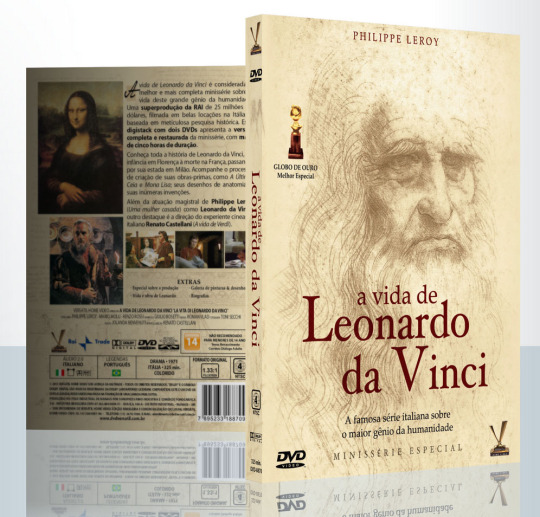
Trata de uma minissérie onde conta a historia de Leonardo da Vinci, desde sua infância ate sua morte, contendo sua amizade com Botticelli e sua rivalidade com Michelangelo.
Fonte: Versátil Home Vídeo
https://www.dvdversatil.com.br/a-vida-de-leonardo-da-vinci/
3.Shakespeare Apaixonado (1999)
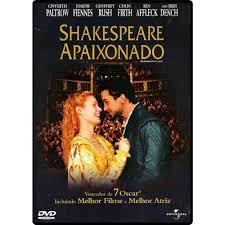
O jovem astro do teatro londrino William Shakespeare (Joseph Fiennes) sofre de bloqueio criativo e não consegue escrever sua peça. Um dia, ele conhece Viola De Lesseps (Gwyneth Paltrow), uma jovem que sonha em atuar, algo proibitivo no final do século XVI. Para burlar o preconceito e ter sua chance, Viola se disfarça de homem e começa a ensaiar o texto de Will, que começou a fluir e passou a dar vazão ao amor entre os dois. O que eles não contavam era com o casamento arranjado pela família entre Viola e Lorde Wessex (Colin Firth).
Fonte: Adoro Cinema
http://www.adorocinema.com/filmes/filme-12263/
4.O Mercador de Veneza
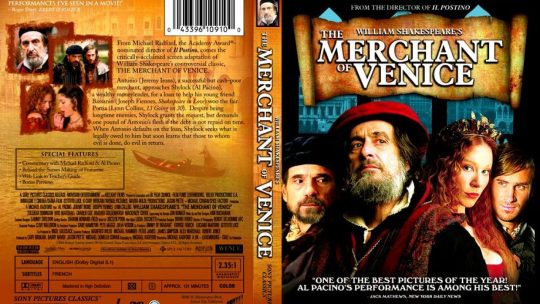
Na cidade de Veneza, no século XVI, Bassanio (Joseph Fiennes) pede a Antonio (Jeremy Irons) o empréstimo de três mil ducados para que possa cortejar Portia (Lynn Collins), herdeira do rico Belmont. Antonio é rico, mas todo seu dinheiro está comprometido em empreendimentos no exterior. Assim ele recorre ao judeu Shylock (Al Pacino), que vinha esperando uma oportunidade para se vingar de Antonio. O agiota impõe uma condição absurda: se o empréstimo não for pago em três meses, Antonio dará um pedaço de sua própria carne a Shylock. A notícia de que seus navios naufragaram deixa Antonio em uma situação complicada, com o caso sendo levado à corte para que se defina se a condição será mesmo executada.
Fonte: Adoro Cinema
http://www.adorocinema.com/filmes/filme-54783/
Fonte: Sua Pesquisa
https://www.suapesquisa.com/renascimento/filmes.htm
1 note
·
View note
Text
shakespeare moments that make me actually scream
bardolph’s execution
hal responding to falstaff’s banish all the world line with “i do. i will.”
viola’s awkward “...of your complexion” and “...about your years, my lord.”
“do you love me, master?”
“and, when the tale is told, bid her be judge whether bassanio had not once a love”
“there’s for you, patroclus”
antonio finishing isabella’s farewell with “from thee, even from thy virtue” after she exits, as well as that entire soliloquy
#these screams of are varying emotions#some sad#some frustrated#some happy#but they make me scream#henry v#richard ii#henry iv part 1#twelfth night#the tempest#merchant of venice#troilus and cressida#measure for measure#bardolph#prince hal#viola#ariel#achilles#my adventures
36 notes
·
View notes
Text
here is round 2 folks (finally)

sorry abt the wait i waited for the tie poll to finish
matchups under cut! and round 1 is here
side a
rosencrantz/guildenstern/hamlet (hamlet) vs helena/hermia (a midsummer night's dream)
roderigo/iago (othello) vs eponine thenardier/marius pontmercy/cosette fauchelevent (les miserables)
enjolras/grantaire (les miserables) vs proteus/valentine (the two gentlemen of verona)
gregor samsa/therapy (the metamorphosis) vs benvolio montague/mercutio (romeo and juliet)
marya bolkonskaya/julie karagina (war and peace) vs polonius/the curtain (hamlet)
puck/titania/oberon (a midsummer night's dream) vs andrei bolkonsky/pierre bezukhov (war and peace)
benedick/beatrice (much ado about nothing) vs starbuck/ahab (moby dick)
romeo montague/paris/tybalt capulet (romeo and juliet) vs christine daae/meg giry (the phantom of the opera)
side b
rodion raskolnikov/dmitri razumikhin (crime and punishment) vs andrei bolkonsky/anatole kuragin (war and peace)
joly/bossuet/musichetta (les miserables) vs enjolras/courfeyrac/combeferre (les miserables)
kent/lear (king lear) vs enjolras/laertes/france (les miserables; hamlet; real life)
raoul de chagny/jay gatsby (the phantom of the opera; the great gatsby) vs tsar alexander/napoleon bonaparte (war and peace)
lord capulet/lord montague (romeo and juliet) AND alphonse berg/boris drubetskoy/nikolai rostov/vasili denisov/fyodor dolokhov (war and peace) vs marius pontmercy/enjolras (les miserables)
les amis + marius (les miserables) vs nikolai rostov/tsar alexander (war and peace)
olivia/violacesario (twelfth night) vs romeo montague/bassanio/anatole kuragin/raoul de chagny/marius pontmercy (romeo and juliet; merchant of venice; war and peace; phantom of the opera; les miserables)
lysander/demetrius (a midsummer night's dream) vs desdemona/emilia (othello)
1 note
·
View note
Text
Sherlock and The Merchant of Venice
Yesterday I watched a production of “The Merchant of Venice” at a German Shakespeare festival. It was the first time I saw the play after watching Sherlock and I think there are some interesting parallels. Today many scholars see a homoerotic element in the story and I agree.
The story basically is this: Antonio, a Venetian merchant, borrows money so that his friend Bassanio can court a woman. In doing so, Antonio risks his own money and status and, in the end, also his life. Of course there is much more to the play but this is where I see the Sherlock parallels. Because throughout the performance I kept thinking of Sherlock in TRF sacrificing his reputation, his home, his work, and even his life to keep John Watson safe. And in TSoT he goes out of his way to ensure that John can have a happy wedding with the woman he has chosen.
At the end of the play we get three happy couples - while Antonio remains alone. Remember, this is a Shakespearean comedy where usually all the heroes get a wife or a husband. But not here. On the outside for Antonio nothing has changed: he is still wealthy and successful, he does not have to fear for his reputation or life anymore.
To me, the strongest proof that Antonio is in love with Bassanio is the very beginning of the play. Antonio starts by declaring:
In sooth, I know not why I am so sad:
It wearies me; you say it wearies you;
But how I caught it, found it, or came by it,
What stuff 'tis made of, whereof it is born,
I am to learn;
And such a want-wit sadness makes of me,
That I have much ado to know myself.
The classic embodiment of melancholy. He is asked if he is worrying about his ships carrying valuable freight the loss of which might endanger his business. Which he clearly denies:
Believe me, no: I thank my fortune for it,
My ventures are not in one bottom trusted,
Nor to one place; nor is my whole estate
Upon the fortune of this present year:
Therefore my merchandise makes me not sad.
Upon which clever Salarino draws a conclusion:
Why, then you are in love.
Which Antonio counters with a short:
Fie, fie!
The Shakespeare Dictionary says about this expression: “to express annoyance or disapproval – ‘shame on you!’, ‘rubbish!’ etc.
Well, methinks the lord doth protest too much. Because then Bassanio enters the scene and after some comic exchanges with other characters Antonio quickly comes to the point:
Well, tell me now what lady is the same
To whom you swore a secret pilgrimage,
That you to-day promised to tell me of?
Now this is quite logical: Antonio is sad. He denies that he worries for his business. He gets angry when someone alludes to love. Then it becomes clear that he has been thinking about Bassanio who is in love with a woman.
While in Hamlet right from the beginning there is an explanation for the melancholy, Antonio’s disposition is never clarified. He is not in love with a woman, he does not fear for his ships, but he is willing to sacrifice everything including his own life to the happiness of his bosom friend Bassanio. Portia calls Antonio “the bosom lover of my lord”, i.e. Bassanio. And these are Antonio’s words while expecting to be killed on the spot:
Give me your hand, Bassanio: fare you well!
Grieve not that I am fallen to this for you;
(…)
Commend me to your honourable wife:
Tell her the process of Antonio's end;
Say how I loved you, speak me fair in death;
And, when the tale is told, bid her be judge
Whether Bassanio had not once a love.
Tagging some people and anyone who is interested please feel free to discuss.
@sherlocks-salty-blog, @ebaeschnbliah, @sagestreet, @sarahthecoat, @tendergingergirl, @tjlcisthenewsexy, @possiblyimbiassed, @raggedyblue, @someovermind, @the-7-percent-solution, @shylockgnomes, @sherlockshadow, @221bloodnun
90 notes
·
View notes
Text
Y’ALL I saw the most AMAZING production of The Merchant of Venice this weekend.
HIGHLIGHTS:
-it was in a tiny little theater, maybe 50 people max? So we were super close to the stage.
-they kept it super minimalist. If the scene needed a chair they’d bring it on, or a table for the 3 boxes, but in general it was all left up to the imagination. Between that and the closeness of the stage, it kept the whole thing feeling very intimate.
-it was clearly a very small company, so while Antonio/Bassanio/Shylock/Portia stuck to their single roles, most of the other actors did some quick changes off stage. I love seeing actors jumping in and out of different roles
-this play is...problematic, and the anti-semitism is hard to ignore. But Shylock’s “If you cut us do we not bleed” speech in this intimate theater was...intense. I had goosebumps. I felt it deep in my bones. I imagine if I’d been the sort who had laughed at the earlier anti-semitic jokes, his lines would have cut me even deeper.
-in happier news, if you’ve read/watched The Merchant of Venice you may have thought “Wow...Antonio is like...SUPER in love with Bassanio”. The director of this play had the same idea. From the first scene, I was like...wait...gay??? He gay??? In KOREA? From the delivery of his lines to his subtle actions when not speaking, the actor playing Antonio made it clear that his love was romantic, if possibly one-sided. Lingering touches to Bassanio’s arm or shoulder, visible pain on his face when Bassanio spoke of Portia. The intimacy of the theater let his emotion get right into my heart.
-which brings us to the climax of the play, the courthouse drama that attempts to spare Antonio’s life. My dudes, my friends, it was INTENSE. We’ve got Antonio about to have his heart cut out, Bassanio by his side trying to pay back his debt, and Portia in disguise trying to save Antonio. (I’m aware that if you don’t know the play well this is confusing as all get out)
So we get to THIS intense bit:
But little: I am arm'd and well prepared.
Give me your hand, Bassanio: fare you well!
Grieve not that I am fallen to this for you;
For herein Fortune shows herself more kind
Than is her custom: it is still her use
To let the wretched man outlive his wealth,
To view with hollow eye and wrinkled brow
An age of poverty; from which lingering penance
Of such misery doth she cut me off.
Commend me to your honourable wife:
Tell her the process of Antonio's end;
Say how I loved you, speak me fair in death;
And, when the tale is told, bid her be judge
Whether Bassanio had not once a love.
Repent but you that you shall lose your friend,
And he repents not that he pays your debt;
For if the Jew do cut but deep enough,
I'll pay it presently with all my heart.
So let me break this bit down for you. Antonio is like, clutching Bassanio’s hands at the beginning of this speech, and his voice is cracking and my dudes...I was having an EMOTION.
SO WERE THEY

I stole this picture from their site. “Say how I loved you” OH MY GOD THE FEELINGS. I WAS NEAR TEARS. BUT WAIT, THERE’S MORE!
At the climactic “I’ll pay it presently with my heart” THEY GRAB EACH OTHER AND HAVE THE KISS OF A LIFETIME.
Says Bassanio:
Antonio, I am married to a wife
Which is as dear to me as life itself;
But life itself, my wife, and all the world,
Are not with me esteem'd above thy life:
I would lose all, ay, sacrifice them all
Here to this devil, to deliver you.
The whole theater erupted. A group of schoolkids freaked out. Gasping. I was in shock. I didn’t know what else to do so I started clapping and thank god the theater followed suit. I think I’m still in shock. Korea is not exactly........progressive. I mean yeah it’s a mostly foreigner based production but STILL.
-the rest of the play continued as it does but with the added bonus of textual Antonio/Bassanio love which makes all the stuff at the end with Portia even more interesting. Not only did her husband give away her ring, he also MADE OUT WITH A DUDE in front of her at a trial.
OH NO I forgot something else that just reached right into my chest and pulled out my beating heart:
PORTIA
Then you shall be his surety. Give him this
And bid him keep it better than the other.
ANTONIO
Here, Lord Bassanio; swear to keep this ring.
OKAY SO. Portia is like “bruh you seem way more trustworthy than my dumb husband, you can be the one who makes sure he keeps the ring I give him. So Antonio, poor dear Antonio, takes the ring, and PUTS IT ON BASSANIO’S FINGER and his voice cracks like he’s about to cry and the second the ring is on he turns away from the audience to hide his face. I’M CRY
Anyway, it was the best and gayest production of the Merchant of Venice I’ve ever seen and I can’t believe it happened in Korea. Thank you for coming to my Ted Talk.
51 notes
·
View notes
Text
The Signs as Female Shakespeare Characters
Aries: Katherine Minola (The Taming of the Shrew)
“If I be waspish, best beware my sting”
Taurus: Viola (Twelfth Night)
“Make me a willow cabin at your gate and call upon my soul within the house,
write loyal cantons of contemnèd love, and sing them loud even in the dead of night”
Gemini: Cleopatra (Antony & Cleopatra)
“Sir, you and I have loved, but there's not it; That you know well. Something it is I would— O, my oblivion is a very Antony, and I am all forgotten”
Cancer: Cordelia (King Lear)
“I am sure my love’s more ponderous than my tongue”
Leo: Titania (A Midsummer Night’s Dream)
“These are the forgeries of jealousy; And never, since the middle summer's spring, met we on hill, in dale, forest, or mead, by paved fountain, or by rushy brook, or in the beached margent of the sea, to dance our ringlets to the whistling wind”
Virgo: Juliet Capulet (Romeo & Juliet)
“Although I joy in thee, I have no joy of this contract tonight. It is too rash, too unadvised, too sudden, too like the lightning, which doth cease to be ere one can say 'It lightens.’“
Libra: Portia (The Merchant of Venice)
“You see me, Lord Bassanio, where I stand, such as I am: though for myself alone I would not be ambitious in my wish, to wish myself much better; yet, for you I would be trebled twenty times myself; A thousand times more fair, ten thousand times more rich”
Scorpio: Beatrice (Much Ado About Nothing)
“But manhood is melted into curtsies, valor into compliment, and men are only turned into tongue, and trim ones, too. He is now as valiant as Hercules that only tells a lie and swears it. I cannot be a man with wishing; therefore I will die a woman with grieving”
Sagittarius: Miranda (The Tempest)
“O, brave new world, that has such people in ‘t!”
Capricorn: Lady Macbeth (Macbeth)
“The raven himself is hoarse that croaks the fatal entrance of Duncan under my battlements. Come, you spirits that tend on mortal thoughts, unsex me here, and fill me from the crown to the toe topful of direst cruelty!”
Aquarius: Rosalind (As You Like It)
“It is not the fashion to see the lady the epilogue; but it is no more unhandsome than to see the lord the prologue. If it be true that good wine needs no bush, 'tis true that a good play needs no epilogue; yet to good wine they do use good bushes, and good plays prove the better by the help of good epilogues”
Pisces: Ophelia (Hamlet)
“There’s rosemary, that’s for remembrance; pray, love, remember; and there is pansies, that’s for thoughts...There’s fennel for you, and columbines; there’s rue for you, and here’s some for me; we may call it herb of grace o’ Sundays. O, you must wear your rue with a difference”
#astrology#shakespeare#taming of the shrew#twelfth night#antony and cleopatra#king lear#midsummer night's dream#romeo and juliet#merchant of venice#much ado about nothing#the tempest#macbeth#as you like it#hamlet#aries#taurus#gemini#cancer#leo#virgo#libra#scorpio#sagittarius#capricon#aquarius#pisces#mod moon
6K notes
·
View notes
Audio
all ‘merchant of venice’ audios
BASSANIO
With all my heart, so thou canst get a wife.
GRATIANO
I thank your lordship, you have got me one.
My eyes, my lord, can look as swift as yours:
You saw the mistress, I beheld the maid;
You loved, I loved for intermission.
No more pertains to me, my lord, than you.
Your fortune stood upon the casket there,
And so did mine too, as the matter falls;
For wooing here until I sweat again,
And sweating until my very roof was dry
With oaths of love, at last, if promise last,
I got a promise of this fair one here
To have her love, provided that your fortune
Achieved her mistress.
PORTIA
Is this true, Nerissa?
NERISSA
Madam, it is, so you stand pleased withal.
BASSANIO
And do you, Gratiano, mean good faith?
GRATIANO
Yes, faith, my lord.
BASSANIO
Our feast shall be much honour'd in your marriage.
GRATIANO
Who comes here? Lorenzo, and his infidels! What, and my old Venetian friends, welcome!
BASSANIO
Lorenzo and Salerio, welcome hither;
If that the youth of my new interest here
Have power to bid you welcome. By your leave,
I bid my very friends and countrymen,
Sweet Portia, welcome.
PORTIA
So do I, my lord:
They are entirely welcome.
LORENZO
I thank your honour. For my part, my lord,
My purpose was not to have seen you here;
But meeting with Salanio by the way,
She did entreat me, past all saying nay,
To come with her along.
SALERIO
I did, my lord, and I have reason for it. Signior Antonio commends him to you.
BASSANIO
Ere I ope his letter,
I pray you, tell me how my good friend doth.
29 notes
·
View notes